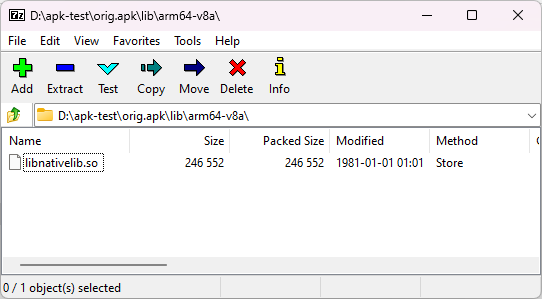If we installed an Android APK and we have a root access, we can modify the .so (native) filesof that app without altering the signature. This is true even if extractNativeLibs is set to false in AndroidManifest.xml. We can also patch the AOT compiled file (ODEX/VDEX) without changing the package signature, but that’s another story, I am just going to focus on the native code.

As a note: this is not a vulnerability, it requires root access. This method was discussed in the Mystique exploit presentation (2022). I just want to show that this is useful for pentest purpose, with an extra tip of how to write binary patch in C.
Background
I was doing a pentest on an Android app with a complex RASP. There are many challenges:
- If I unpack the APK file and repack it, it can detect the signature change
- If I use Frida, it can detect Frida in memory, even when I change the name using fridare
- It can detect Zygisk, so all injection methods that use Zygisk are detected
- It can detect hooks on any function, not just PLT. It seems that it is done by scanning the prologue of functions to see if it jumps to a location outside the binary; the app developer needs to call this check manually (this is quite an expensive operation), which is usually done before it performs some critical scenario.
- The RASP uses a native library, which is obfuscated
Given enough time, I am sure it is possible to trace and patch everything, but we are time-limited, and I was only asked to check a specific functionality.
When looking at that particular functionality, I can see that it is implemented natively in a non-obfuscated library. In this specific case, If I can patch the native code without altering the signature, I don’t need to deal with all the anti-frida, anti-hook, etc.
Continue reading “Patching .so files of an installed Android App”